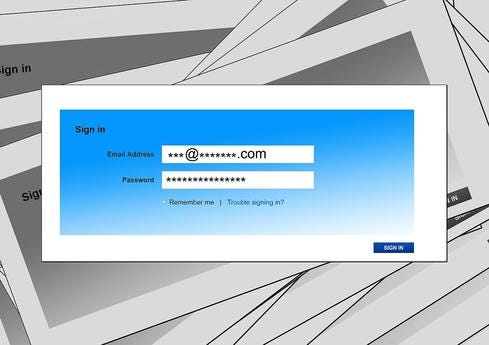Epic On EHR Interoperability: Not A '1-Time Project'Epic On EHR Interoperability: Not A '1-Time Project'
Epic has ridden the wave of electronic health record adoption to huge success. Now it needs to help drive a wave of EHR data-sharing.


How To Make Passwords Obsolete
How To Make Passwords Obsolete (Click image for larger view and slideshow.)
For decades the low adoption level of electronic health record systems was the major impediment to achieving the promise of health informatics to improve care quality and efficiency. As a result of the federal HITECH Act and the shift to value-based contracting by Medicare and many private insurers, we've seen a dramatic increase in EHR adoption in just a few years. Now the focus is shifting to the next challenges: interoperability, privacy and security, and use of the "big data" derived from EHR systems for research, population and public health among other purposes.
Interoperability has been the main focus of this blog for some time now and the views of the major enterprise health software vendors are of obvious interest. In an earlier post I interviewed Cerner's David McCallie. Over the past decade or so Epic has emerged as arguably the largest enterprise health software vendor for major hospitals and health systems. Interestingly, and unlike its competitors, Epic began as an EHR company. To learn more about this closely watched, privately held company's views I interviewed Eric Helsher, VP of client success, a role he describes as helping Epic's clients get the full value from their EHR investment.
MB: Epic and its competitors are often described as "closed systems" that make it difficult, even for their clients, to access data for purposes other than those provided by the vendor. Is this a fair criticism?
EH: No, it's the opposite. The Epic community is the most innovative and interoperable group of healthcare organizations in the world. Through their participation in our Care Everywhere network, they share 8.5 million patient records monthly with providers on other systems, such as Cerner and athenahealth, with HIEs and Direct HISPs, with one another, and with the Department of Defense, VA, and Social Security Administration on the eHealth Exchange. Although participation is optional, 100% of live EpicCare EMR sites in the US are connected to each other via Care Everywhere. It provides them with a common "electronic phone book" (similar to DNS), a common trust framework, and a common set of rules of the road. We are a member of HealtheWay, a non-profit that operates the eHealth Exchange. Much of our data sharing is via CCDA based documents, as called for by Meaningful Use. Epic-to-Epic exchanges add other fields within the CCDA documents that enrich the content with data that is not yet formally supported in CCDA. This data sharing is two-way; other systems can respond to or initiate patient queries.
MB: What is Epic's current view of EHR interoperability? Is this something the company feels needs addressing and, if so, how are you addressing it?
EH: Interoperability is not a "one-time project." Our customers have shown success with interoperability for years, and their expectations will continue to increase over time. Two things that have made the Care Everywhere network successful are the trusted phonebook and the agreed upon rules of the road. Healthcare needs this kind of framework industry-wide to enable broader interoperation. One group addressing this is HealtheWay's new Carequality initiative to connect all networks and exchanges. This is similar to banking, where you can go to an ATM on any bank's network. These are important steps in enabling more pervasive data sharing across the industry.
MB: What about CommonWell, the multi-vendor interoperability project I’ve described previously? I notice it’s not on your list of current list of interoperability initiatives?
EH: CommonWell is a network. If it grows successfully they should be able to join us on Carequality which is a network of networks.
MB: I recently interviewed John Halamka about his the Argonaut Project. I found it fascinating that the major enterprise software vendors Cerner, Epic, McKesson, and MEDITECH are all participating in it. Should we infer from this that the day will arrive when health software systems are substantially interoperable and can share data through Web services such as those proposed in the JASON Report and provided by the new FHIR standard?
EH: Epic supports APIs today. Many are publicly available and documented on open.epic.com. That said, the Argonaut Project is a promising collaborative. Through Argonaut, FHIR might eventually replace CCDA, but it's too early to know. One of the benefits of FHIR over document exchange is that it is composable [Editor's note: FHIR resources can be selected and assembled in various combinations.], so it will be interesting to see the use cases of that more modular framework come out over time. In our view there is at least one major obstacle -- the current lack of standard definitions of clinical terminology across systems. Argonaut might define the "wrapper," but the contents need to be standardized. Without clinical standardization, we run the risk of creating technical specs that are either too rigid to be well adopted or too flexible to be easily understood across organizations. We view Argonaut as a step in the right direction, we are happy to be a part of it, but we feel more is needed.
MB: Epic will be opening its own app store. Might we even see a "universal app platform" such as SMART on FHIR, as was proposed by JASON, such that my Georgia Tech students can start companies that provide innovative apps to physicians, patients and other end users independent of the EHR they are using?
EH: Your students can develop apps today. Epic clients are writing apps using our APIs posted on open.epic.com. There is also a sandbox available on that site for developers to test their apps. Independent, third party vendors are also integrating with Epic through APIs. For example, InQuicker uses our open scheduling Web services to let patients book appointments for healthcare services at certain Epic clients. Your students and others can also develop apps that send data to Epic through Apple's HealthKit. We were the first vendor to develop this capability and already a number of organizations are live with it, Ochsner Health System in New Orleans being the first. In time we may support the exchange of apps across clients and systems but security, privacy, and performance issues must be managed. Apps need to be well behaved to not compromise data integrity. We feel a responsibility to assure this for our customers.
MB: In her interesting 2013 Forbes interview, Epic CEO Judy Faulkner expressed some concerns about protecting the company's intellectual property as customers, such as the Cleveland Clinic, increasingly seek to develop their own apps or extensions to the Epic system. Do you feel that the use of a technology such as FHIR to access data in Epic provides sufficient separation between the app platform and your proprietary software to alleviate this concern?
EH: Yes, it does. We're on board with FHIR. Ultimately though, our concerns are less about IP and more about ensuring the safe and reliable exchange of data. FHIR, as well as the Carequality collaborative, are focused on that.
MB: I used and programmed in MUMPS almost from its inception in the late 1960s. Today, nearly 50 years later, Epic, Meditech, and the VA -- arguably the three most widely installed enterprise software systems -- all use this technology that is virtually unknown outside of healthcare. Does Epic see MUMPS remaining as its core technology for many years to come and, if so, why?
EH: Epic runs on InterSystems Cache, a modern technology with its roots in MUMPS. To us, calling Cache "MUMPS" is like calling a SQL database "Ingress" or Oracle "System R." Cache, especially the latest version, offers the best performance and scalability for our customers. Database performance affects response time, and response time is important to busy clinicians.
{This article was changed 4/13 to restore a question on CommonWell left out in the editing process.}
Attend Interop Las Vegas, the leading independent technology conference and expo series designed to inspire, inform, and connect the world's IT community. In 2015, look for all new programs, networking opportunities, and classes that will help you set your organization’s IT action plan. It happens April 27 to May 1. Register with Discount Code MPOIWK for $200 off Total Access & Conference Passes.
About the Author
You May Also Like






